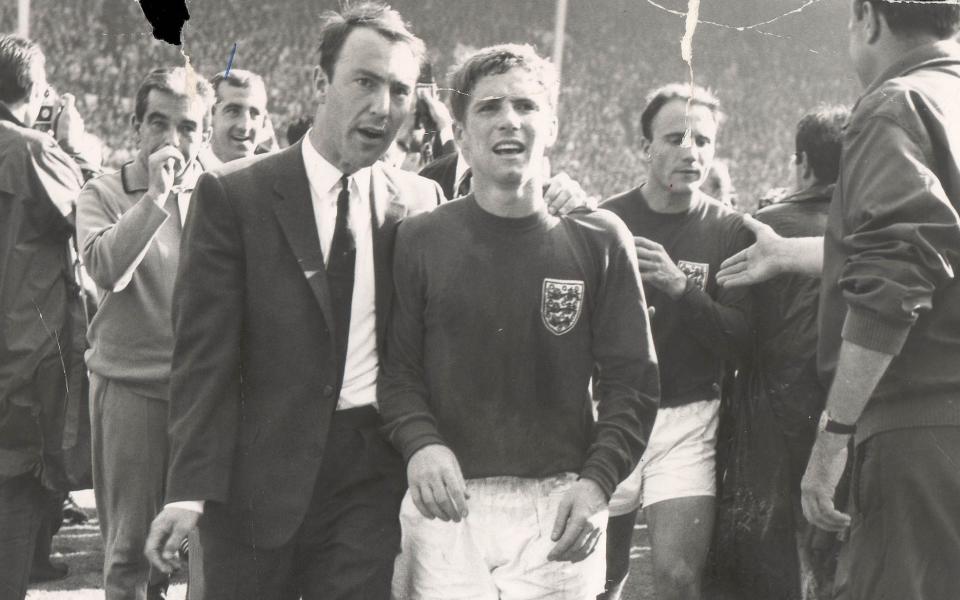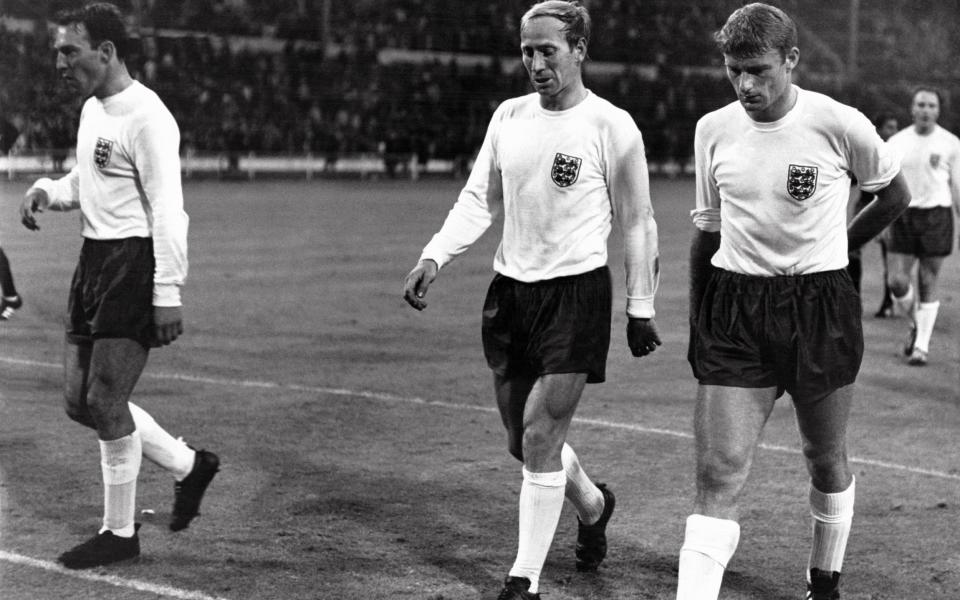Jimmy Greaves was supposed to be England's 1966 hero but injury meant 'the big one' eluded him - and it hurt

Such was Jimmy Greaves’s vivid potency as a striker, the assumption among most observers was that he would be central to England’s attempts to win the World Cup on home soil in 1966. At 26 he was at the peak of his powers, the world-class finisher that every other nation - even the Brazilians - envied. Indeed, despite having contracted hepatitis earlier that season, he showed his value to home hopes by scoring four times in a warm up game against Norway. Here was the man surely, to bring to life Alf Ramsey’s insistence that England were on course to win the trophy.
No one could be astonished, then, that the manager started him in all three group games; he knew what Greaves could do. The surprise was, perhaps, that he didn’t score in any of them. Those group games in 66 were a rarity: international fixtures in which the fourth highest goalscorer in English football history failed to find the net. Worse, in the victory over France, a ferocious tackle resulted in his shin being cut so deeply he required 14 stitches. It meant he was not available for the quarter-final against Argentina. Geoff Hurst stepped in and headed home the only goal.
“I knew the moment Geoff scored there was no way back in for me,” Greaves said in an interview in 1993. “Well, unless someone else got injured.”
It is not hard to argue that had football been like it is now in 1966, having recovered from his knock, Greaves would have come on to the pitch in extra time in the final, exploited the space in the tiring German defence, and maybe even scored a critical goal. But instead, with no substitutes allowed in those days, he was obliged to watch in a suit from the Wembley sidelines. He may have looked immaculate in his mod tailoring, but the hurt at missing out was evident in his eyes; the man who everyone expected to be at the centre of the effort was pushed to the periphery. He might have won the FA Cup, twice, and the European Cup Winners' Cup with Spurs, but the big one had eluded him. Hurst, however, suggests that Greaves never blamed his replacement for his disappointment.
"There have been some great players but forwards are judged on goals, and there's nobody who could touch him," Hurst says. And he should know. "I am asked: is there any animosity between Jimmy and I, because I took his place. But not for one second.”

Still, the following year after adding just three more goals to his international tally, Greaves asked Alf Ramsey not to pick him again for England duty, insisting he was not interested in being a bit-part player. And the assumption has long held that the disappointment of missing out in 66 was the trigger for a desperate descent into alcoholism that blanked his immediate post-football life. However, when he had emerged from his personal tunnel, he explained that what was more likely to have pushed him towards self-destruction was losing his first born son in childbirth, not dismay about 66. After all, for him football was just a funny old game.
Though perhaps the saddest part of Greaves’s association with 66 was the time for his part in England’s finest victory to be properly acknowledged. Back then only those who played in the final were entitled to a winner’s medal; those who had helped get there were officially ignored. Finally, after a widespread newspaper and fan campaign, he was given one in 2009. And then, with heart-breaking irony, he was obliged to sell it six years later to fund the help his deteriorating medical condition required.

 Yahoo Sport
Yahoo Sport 





































